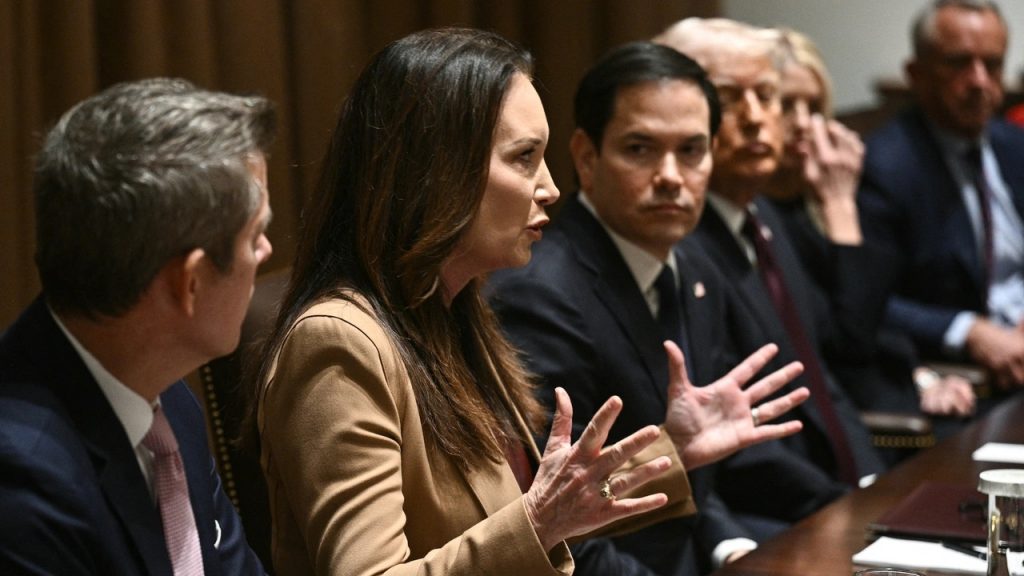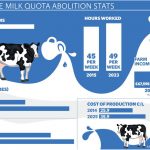
Rollins announces new requirements to unfreeze funds while Congressional Dems push back.
This week Agriculture Secretary Brooke Rollins announced USDA is releasing more previously obligated funding that was paused during the early days of the Trump administration. But the announcement comes with a catch. Rollins says impacted recipients now have 30 days to review and voluntarily revise their project plans to align with a Trump executive order.
The president issued the order, titled “Unleashing American Energy,” on his first day back in office. It includes several provisions intended to spur energy production. It also aims to eliminate rules and regulations the administration considers impediments to that goal.
Among the recipients who may see their funding reinstated are those who participated in the Rural Energy For America Program (REAP), Empowering Rural America (New ERA) and Powering Affordable Clean Energy (PACE) programs. According to Rollins’ press release, USDA’s new project review process will give rural electric providers and small businesses the opportunity to refocus their projects on expanding American energy production while “eliminating Biden-era DEIA and climate mandates embedded in previous proposals.”
Rollins says USDA Rural Development representatives will inform recipients individually about this “opportunity.” Those who respond will be asked several questions and be required to provide a “short narrative description” of any proposed changes.
The Secretary contends program guidance reflects a broader “shift away from the Green New Deal and the so-called Inflation Reduction Act.” According to her, USDA will instead focus on “practical” energy investment that prioritize the needs of rural communities.
“The IRA was marketed as a cure-all but delivered more bureaucracy than benefits for rural families,” Rollins said in a March 25 statement. “This course correction puts those investments back to work to support President Trump’s vision for energy independence and sets rural America on a path to lasting prosperity.”
So how do farmers get their money?
Unspecified in USDA’s announcement is what exactly changes farmers will need to make to get their previously promised funds. Laura Beth Resnick of Butterbee Farm in Maryland is one of those who saw funding disappear after she’d made significant investments in a solar project.
Per her contract, she was to receive repayment for half the project’s costs through the REAP program. The Trump funding freeze left her on the hook for approximately $36,000. Resnick says she never would have started project if USDA hadn’t contractually guaranteed financial assistance.
As of Friday morning, Resnick was still waiting for additional information from local USDA officials on how to proceed. While she doesn’t think it’s possible to change an existing or completed project like hers, she doesn’t want to do anything that results in the termination of her funds.
Earlier in March, Resnick joined multiple plaintiffs in a lawsuit filed by environmental advocacy group Earthjustice. The lawsuit against President Trump and USDA alleges the administration is unlawfully withholding funds appropriate by Congress through the Inflation Reduction Act. Earthjustice senior attorney Hana Vizcarra released a statement calling USDA’s Tuesday announcement a “disingenuous stunt” intended to formally deny grant funds that have already been awarded.
“Farmers have taken on loans and spent thousands of dollars to install solar panels and pursue energy efficiency upgrades because they believed they would be paid back in line with their REAP agreement,” Vizcarra says. “President Trump and Secretary Rollins can’t change the rules of the game well into the second half. This is the definition of an arbitrary and capricious catch-22.”
More calls for USDA action
Opposition to USDA funding freezes extends well beyond environmental groups. On Thursday, 352 farm and food groups signed on to a letter demanding Congressional agriculture leaders reinstate frozen funds. They say frozen funds have negatively impacted everything from energy efficiency and infrastructure investments to regional food systems initiatives and assistance for beginning farmers.
“The USDA’s continued failure to honor its contractual obligations will be detrimental to American agriculture, harming farmers, small businesses and other project participants who have invested significant time and resources,” their letter says. “Failing to meet these commitments will drive farmers out of business and sow distrust in farming communities, causing massive setbacks in the food and farm system while wasting previously invested funds.”
Those groups want congress to support legislation mandating USDA honor all frozen contracts. On Thursday, Sen. Cory Booker, D-N.J., and Rep., Gabe Vasquez, D-Md., introduced the Honor Farmer Contracts Act.
The bill, which will be introduced in both the House and Senate, would require USDA to unfreeze all signed agreements and pay all past due payments as quickly as possible. It would prohibit USDA from canceling contracts or agreements. The bill would also require USDA to give Congress a 60-day notice before closing any Farm Service Agency county office, Natural Resources Conservation Service field office or Rural Development Service Center. Agency officials would have to provide a justification for any closures, as well.
Booker says the funding freeze has left farmers across the country in limbo, with many facing catastrophic consequences. He calls USDA’s refusal to pay what is owed to farmers and other organizations “theft, plain and simple.” According to Booker, this is a critical time of year for farmers and ranchers, who should not have to worry about unpaid contracts.
“This legislation will fix that by forcing USDA and the Trump Administration to hold up their end of the deal,” Booker says.
While 16 Democrats are cosponsoring the bill, no Republican has publicly come out in support. That means the legislation may face an uphill battle in the Republican-majority Congress.
You can now read the most important #news on #eDairyNews #Whatsapp channels!!!
🇺🇸 eDairy News INGLÊS: https://whatsapp.com/channel/0029VaKsjzGDTkJyIN6hcP1K
























